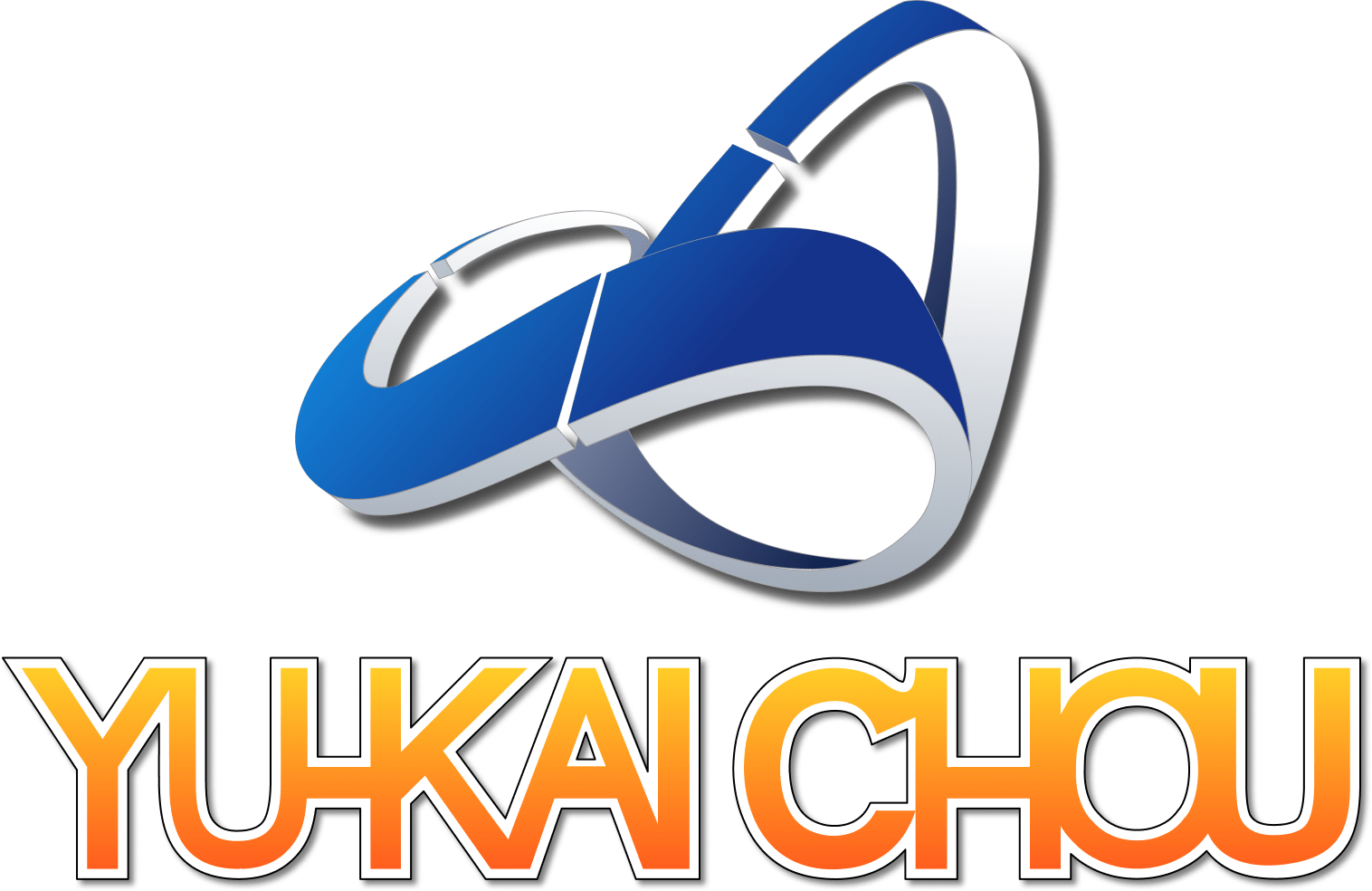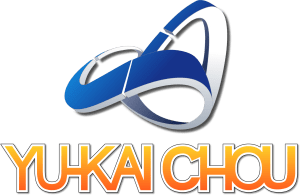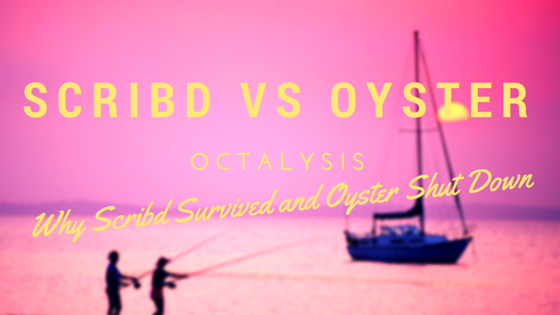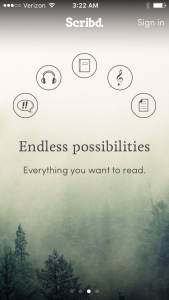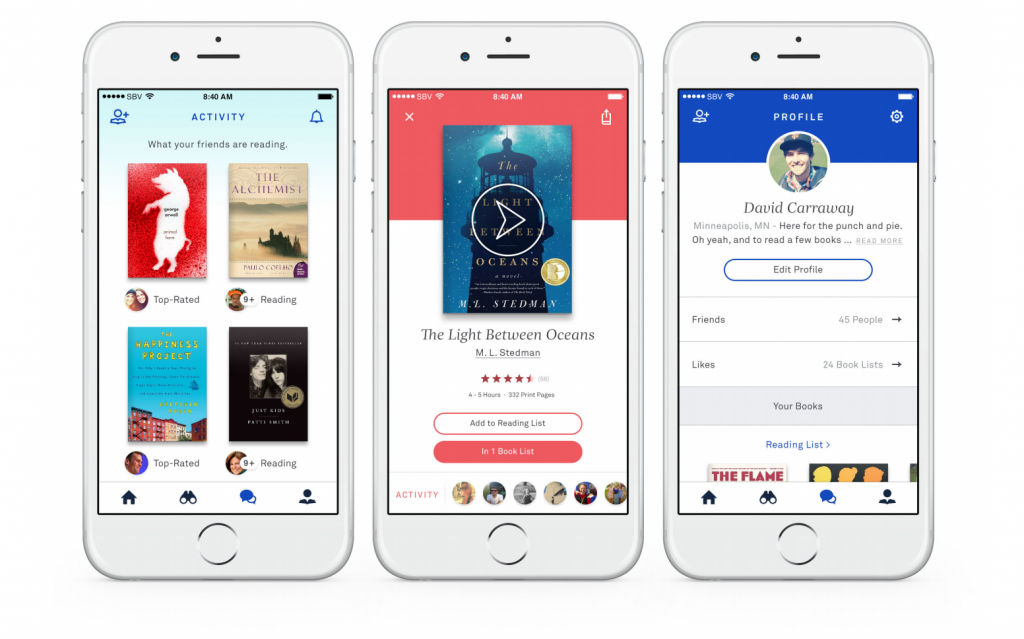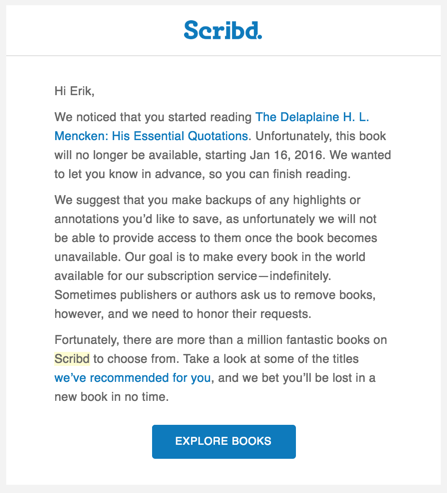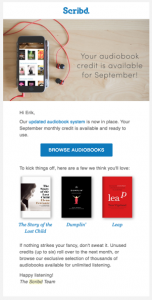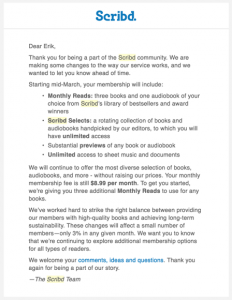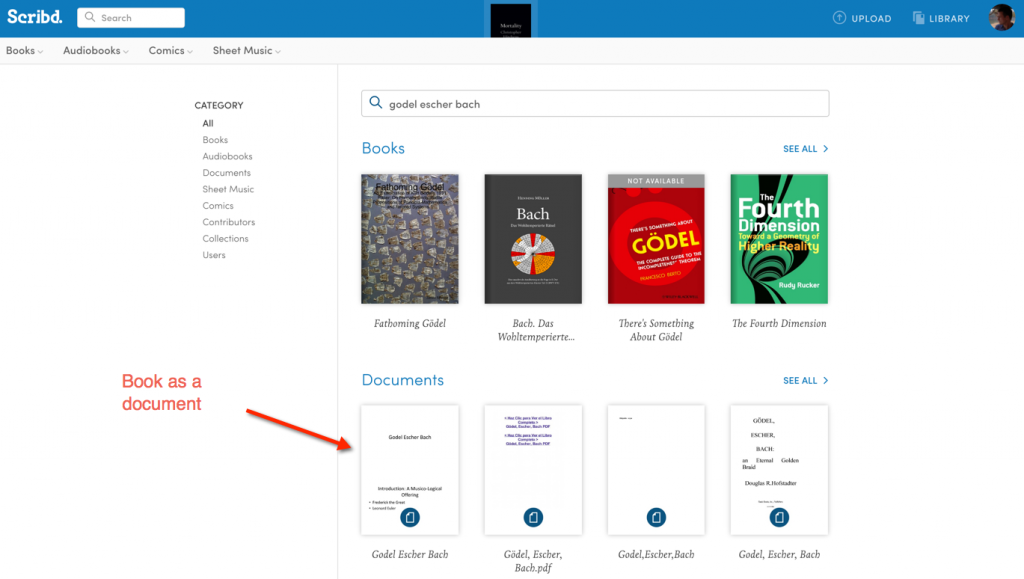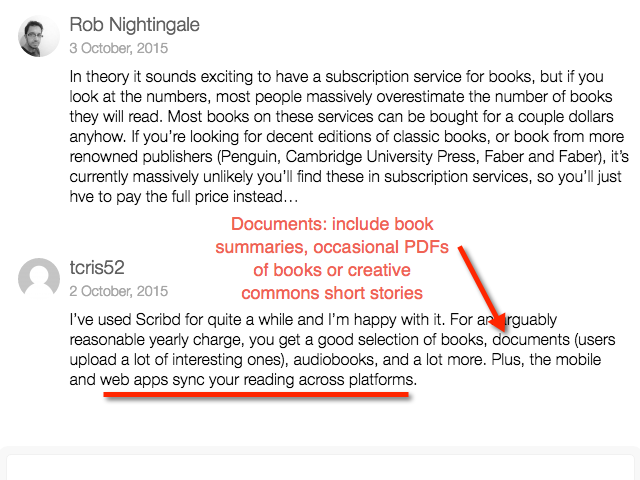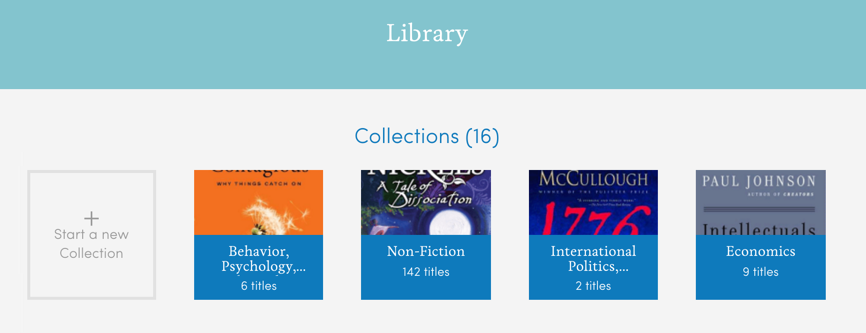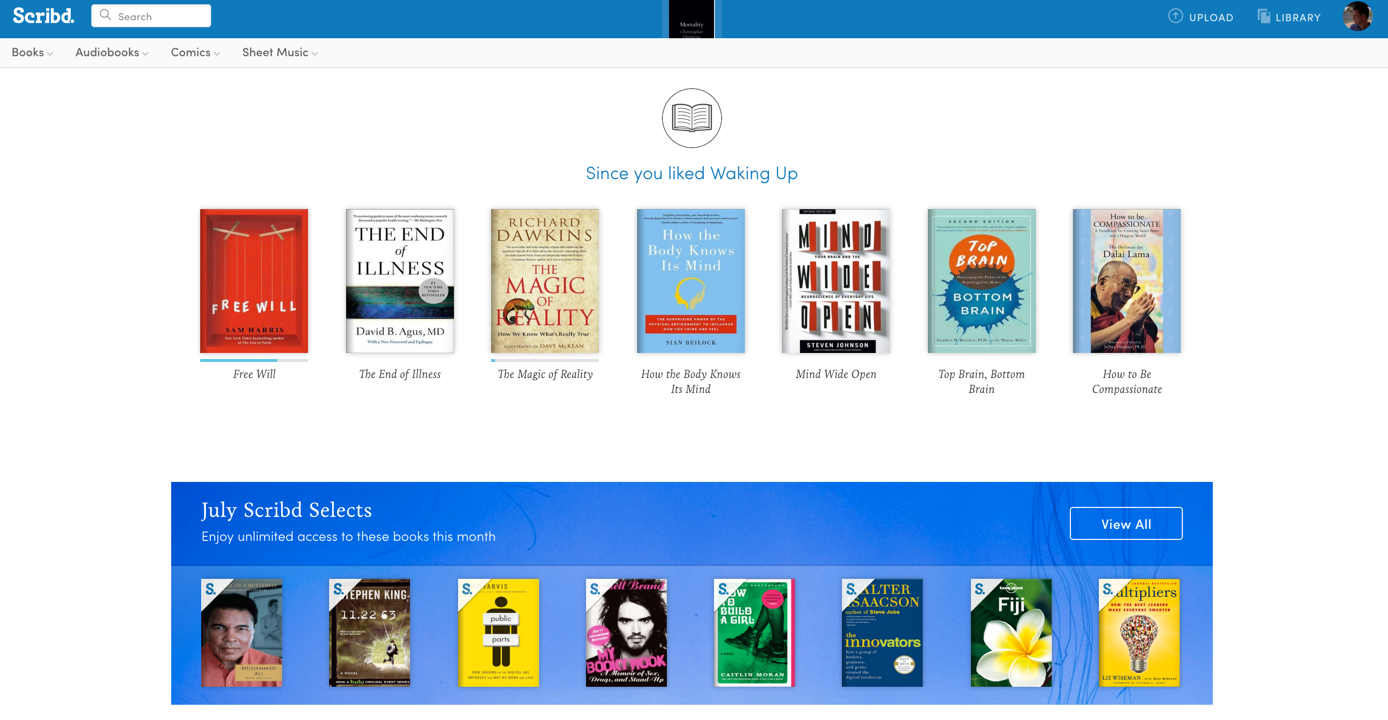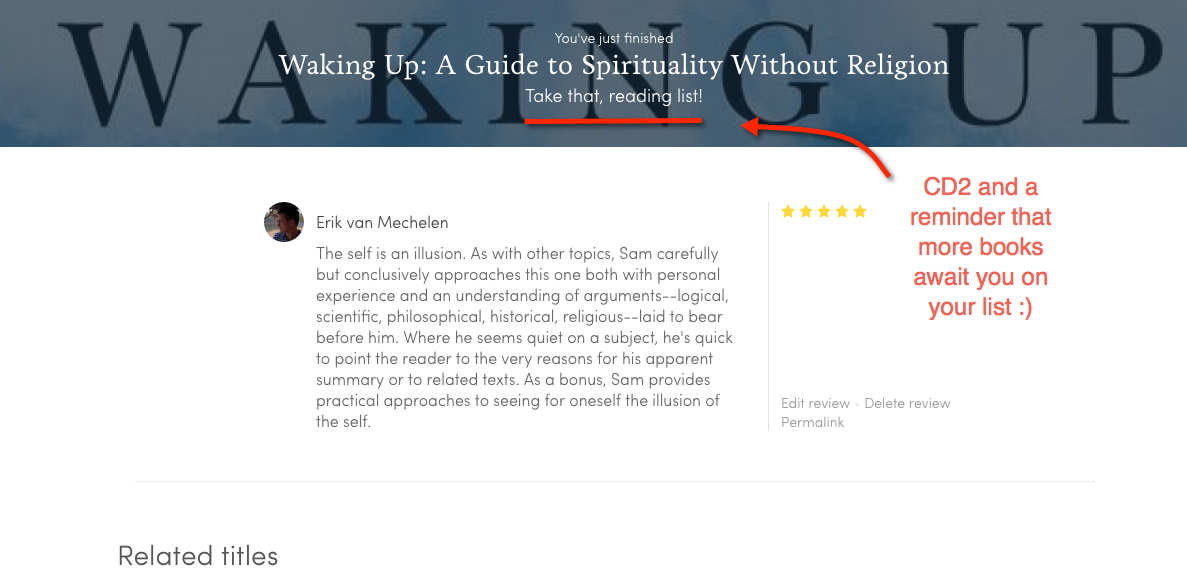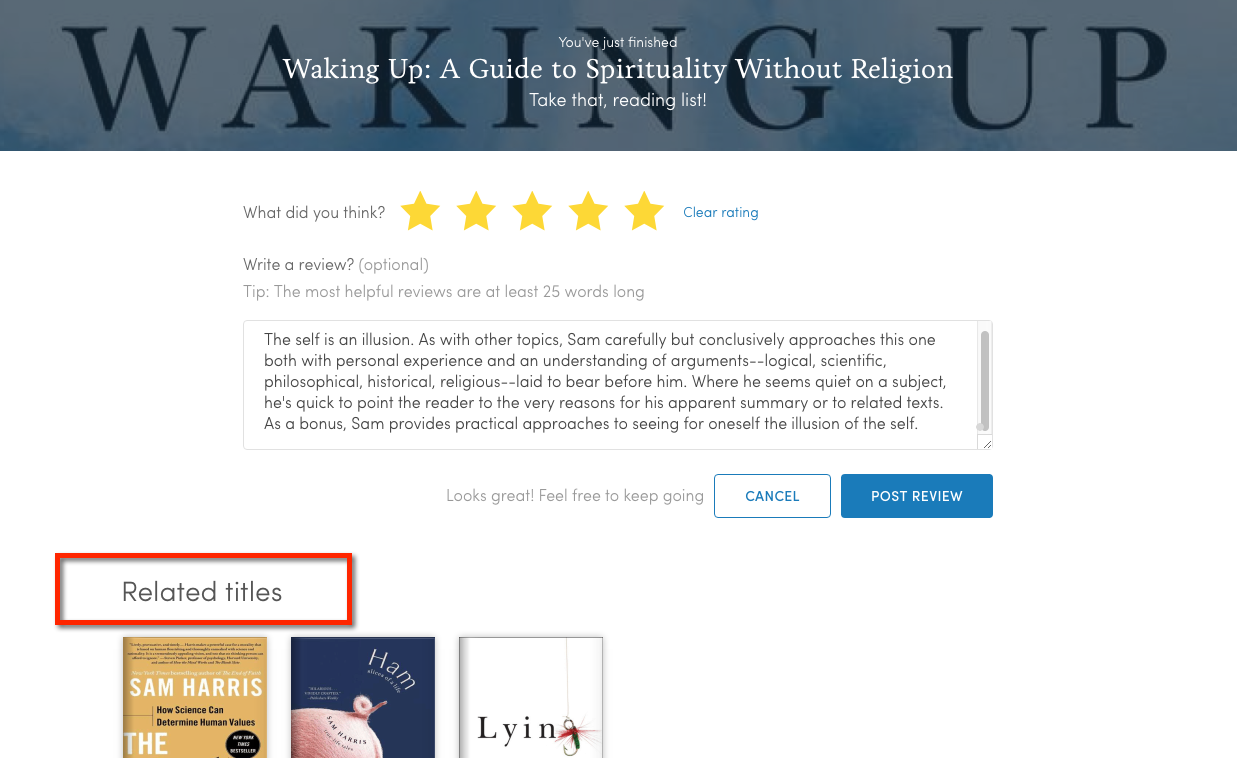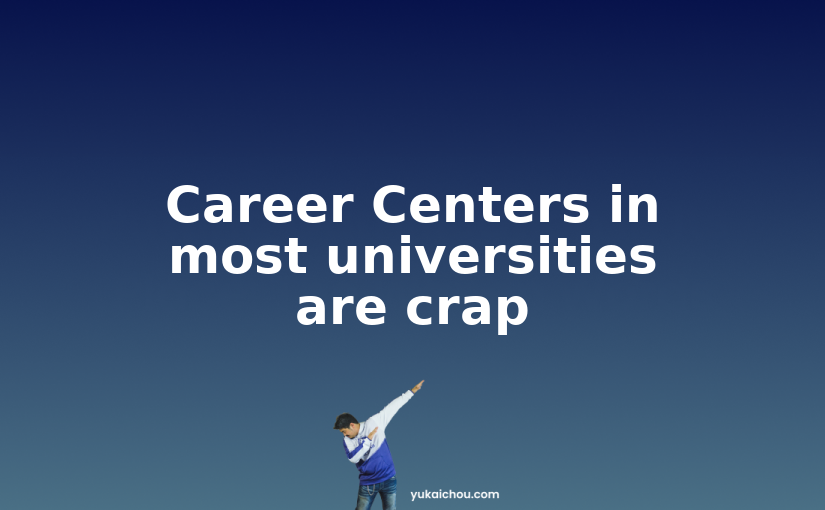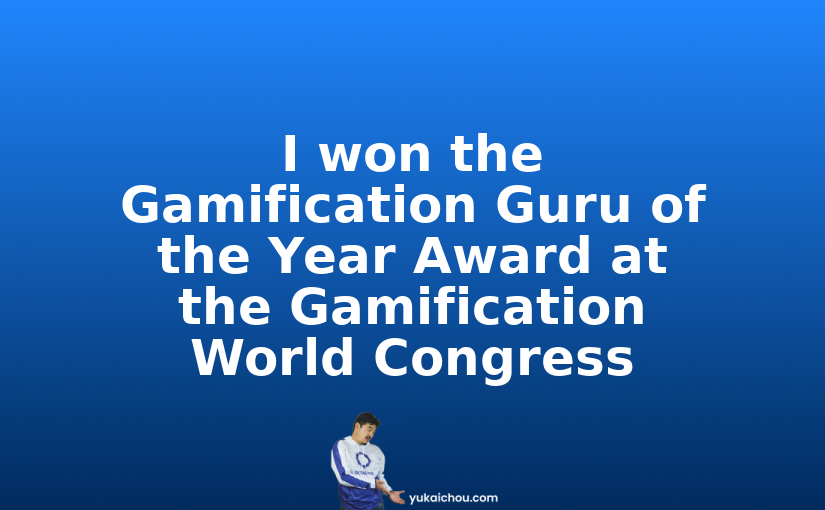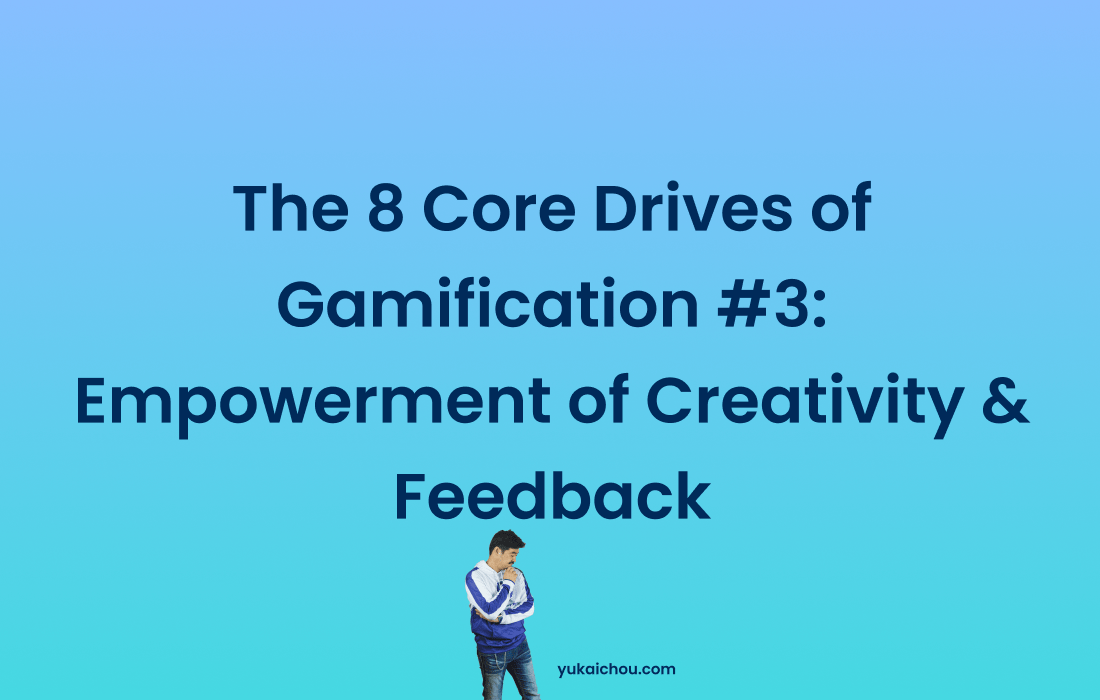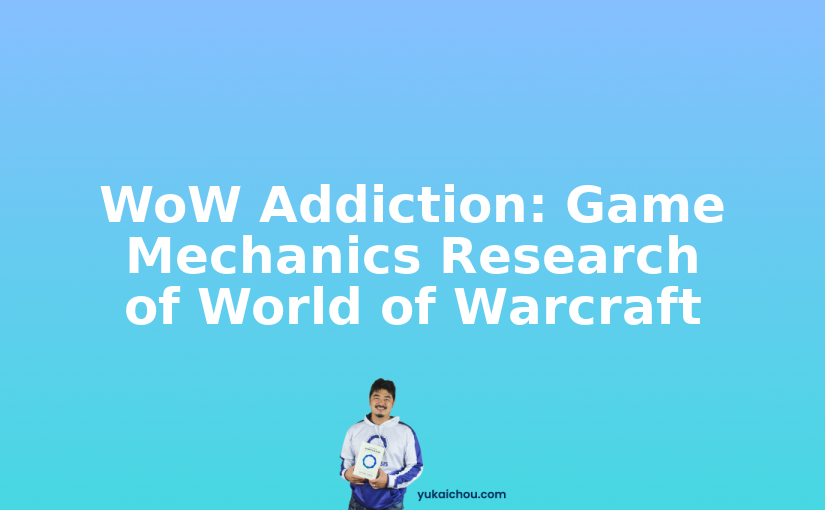Unlimited reading sounds nice, doesn’t it? It sure did to me, too. I started using two subscription-based services in 2015, Oyster and Scribd.
By September 2015, Oyster was shut down. But in July 2016, Scribd seems alive and well.
Why did Oyster shut down? How did Scribd survive? Let’s use Yu-kai Chou’s 8 Core Drives of Octalysis to pit these e-book reading subscription services side-by-side.
As we dive in, let’s keep in mind the following context:
- Oyster and Scribd were both probably aware their business models were unsustainable from the outset. They would need to attract users and then convert those users to a slightly different value proposition.
- The marketplace for reading and publishing and the character of subscription-based e-book services is very new in the online space (but subscription publishing is very old otherwise).
- Kindle Unlimited is somewhat immune from this scrutiny since it is one of many Amazon companies, and, in the reading industry, it works well alongside Audible, Amazon’s Kindle marketplace, and Goodreads.
As always, let’s use the following 8 Core Drives of Octalysis:
- Core Drive 1: Epic Meaning & Calling
- Core Drive 2: Development & Accomplishment
- Core Drive 3: Empowerment of Creativity & Feedback
- Core Drive 4: Ownership & Possession
- Core Drive 5: Social Influence & Relatedness
- Core Drive 6: Impatience & Scarcity
- Core Drive 7: Unpredictability & Curiosity
- Core Drive 8: Loss & Avoidance
A Dream Come True
I first tried Scribd when it came bundled as a bonus with Tim Ferriss’s TV series about learning new things (CD6/7). I grabbed the two-month free trial and began amassing collections of books (CD4), exploring new titles (CD7), and using various fiction authors’ writing styles as models for my own writing (CD2/3). I suddenly had a library on my phone/tablet/desktop.
As an aspiring fiction author (I intend to write full time my entire life), the ability to simultaneously read tens and hundreds of books was incredible. In the first month, I read the equivalent of 12–15 novels and sampled hundreds of books across my non-fiction interests, from neuroscience to linguistics to international relations to labor economics to biology to consciousness. This was, in short, a dream come true.
Curiosity is the lust of the mind.
-Thomas Hobbes
And the World Was My Oyster
I was also using Oyster mid-2015. Oyster’s advantages, to my naked eye, rested within its design aesthetic…reading on my phone or tablet felt great. Organizing books was equally satisfying (and I even purchased a few). Remember, Oyster’s model provided extensive samples (much longer than the 10% average of Kindle titles).
I wasn’t using Oyster quite as much as Scribd, but I did purchase several titles on Oyster since their discounted price made them cheaper than purchasing on Amazon.com (yes, cheaper than Amazon). For a writer like me, who wants to be in the know on what authors are doing in my field, having access to cheaper recently published books was pretty great (CD4).
Inherent Weaknesses Revealed
This story takes a turn when the inevitable happened: these companies weren’t making enough money to offset the established royalty agreements set with publishers.
Both companies had set royalty-by-percentage-read thresholds with the publishers providing content (including the Big 5 publishers). The economics didn’t check out. Casual users weren’t using the product enough to get value and dropped out, while power users were using the products too much.
Consider the thought-process for two different readers:
The Casual Reader: After the initial excitement of exploring, they didn’t see the value in a discounted book (they only read one or two books a month, anyway), so why pay for a subscription and the book when a book could occasionally be bought from Amazon instead?
The Avid Reader: They have time and attention to read anything they can get their hands on (I fall into this category, reading more than 3 books per month).
Because the distribution of readers on Oyster and Scribd probably is a U shape (the opposite of a bell curve), the companies were just not making enough revenue to make up for the royalties paid out to the publishers (by the way, most publishers like subscription services because it allows them to make use of their backlog of previously printed books).
Righting the Sinking Ship:
Given the publisher payouts, the pricing models couldn’t stay the same for either Oyster or Scribd.
Remember, Oyster was a sample-to-buy model while Scribd was an all-you-can-eat model.
Oyster didn’t seem to adjust as well. It’s notable that on LinkedIn, Eric Stromberg’s profile boasts reaching a $7M annual revenue rate, but it’s hard to know if it would have been sustainable (Google acquihired much of the Oyster team and Oyster as a product was shut down shortly thereafter– there was speculation the model wouldn’t have been sustainable).
As for Scribd, the first hint things could be changing was the following email:
Scribd Survived, But First They Lost Me
Scribd had hinted at changes. Then the email “hammer” arrived. Scribd carefully explained their service was no longer unlimited.
Even with the three books and one audiobook per month offer, Scribd still lost me for a bit.
The Return
But then I came back one month or two months later. Why?
Simple. I logged back into Scribd to see if they had a title my friend recommended (CD7). The Search functionality worked as expected.
Behold! The book my friend recommended was available as a free Document. Documents were a new feature since I’d left Scribd.
I then poked around the site and noticed Scribd had retained my collections, about 300 books across 14 collections, and my current spot in reading each title. These were very nice to look at on my tablet and desktop (Trophy Case, CD4), but also easily accessible on my phone.
The place still felt like home! (Alfred Effect, CD4), so I reconsidered Scribd’s value proposition in a less emotionally-charged state. I could sensibly assess the value, three books and one audiobook for $8.99. This was cheaper than a single audiobook from Audible ($14.99).
I decided to rejoin Scribd.
As I re-engaged with the product across phone, tablet, and desktop, I noticed features I liked (some of which were added since I’d left).
Even though Scribd no longer provides unlimited reading, they do have an editorial team selecting free reads each month. These 20 or so books give a decent selection of fiction and non-fiction titles (CD7). This supplements the recommendation engine (CD4/CD7).
Did I mention finishing books on Scribd feels great? When I finish a book, I get a boost to CD2 (“take that, reading list!”):
While in the mood to start something new, I am shown related titles (CD7):
A New Way to Read
Scribd has entered my reading routine. Now, my reading flow is simple. I keep a Fieldbook database/spreadsheet of what I’d like to read and what I’m reading on my various platforms: Scribd, Audible, iBook, Kindle, and print.
I don’t care that much if others know what I read, but for those who are motivated by sharing, collections and reviews can be shared (CD5). This would appeal to someone who keeps extensive lists and does reviews on Goodreads, for instance (yet another Amazon company).
Scribd has succeeded in doing a fairly remarkable thing. They’ve managed to create a new place to read and survived where Oyster didn’t. Even with Kindle Unlimited providing healthy competition, Scribd has remained. Some of the techniques above suggest how they’ve accomplished that. By paying attention to their users’ motivations, they can continue to do so.
